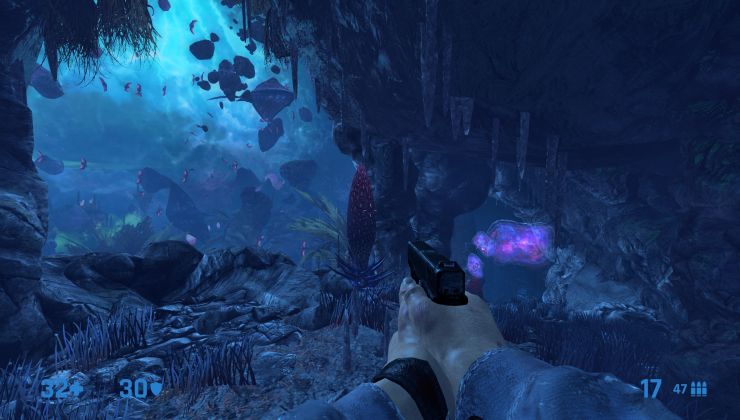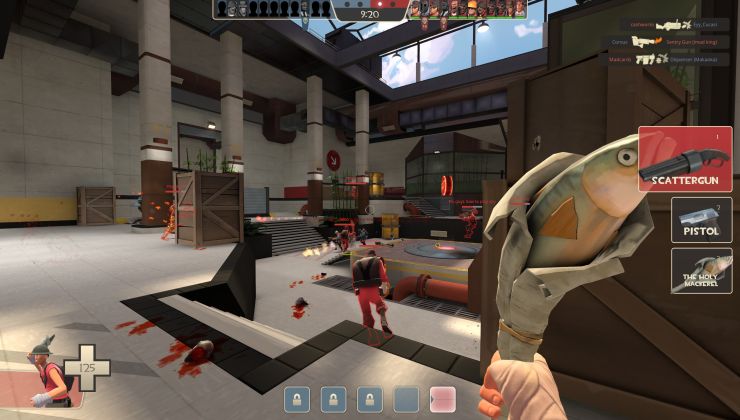Track Mania Nations Forever, the free racing game from developer Nadeo can now be installed and run rather easily on Linux thanks to a Snap package.

The package was created by Martin Wimpress and Alan Pope from Canonical as a "bank holiday weekend project". I spoke with Wimpress about it and tested it a bit, here's what he said about it:
In addition to having a cool Windows game, it is confined so it doesn't mess with whatever WINE stuff you might already have setup. The snap of tmnationsforever is also a template upon which anyone can create snaps of WINE compatible games and applications.
If your distribution doesn't have Snap support built in yet, find install instructions here. You can install it running this simple command in the terminal:
snap install tmnationsforever snap connect tmnationsforever:joystick
I've noticed, that it doesn't work on the NVIDIA 396 driver series, but it does work fine on the 390 driver.
To be clear, it's not finished yet and they are looking for feedback, which you can do so in this linked forum post. For those interested in the snap template to make your own, it's on GitHub.
I actually played one of the Track Mania games years ago before being a Linux user and I had a serious amount of fun with it, so things brings back some good memories.
I'm not often one to advocate the use of Wine, but taking into account that it's free, old and likely never to be ported to Linux, making use of Wine for a game that works so well seems like a perfect fit. Having it all configured for you with a single package like this, certainly makes it a lot easier too.
Article updated after publishing to point to the newer install method, it's no longer in the unstable channel.
ps how do you know those spy laden snaps did no harm? apart from mining bitcoin what were they doing? what data were they collecting from the infected machines? did removing the snaps remove the spyware or did it migrate to other parts of the infected systems? yes I know snaps are supposed to be isolated from the rest of the system but who actually knows that for sure & can prove it 100%?
After fighting Windows virii & spyware/malware over the years I've got to a point where I want an OS that I don't have to worry about that sort of thing, if Snap is going to bring that risk to Linux then I don't want it.
Quoting: RybladeQuoting: slaapliedjeCanonical/Ubuntu. The ones who put amazon searches by default within their Desktop Environment?
Yes, them. The same ones who made snapd capable of running on other distributions that don't track you at all. What's your point? Nobody is forcing you to use Ubuntu.
Pretty sure thay did no such thing, and it is the work of other distros that put in the work. I know know one is forcing me to use Ubuntu... yet, might have to deal with it at work.
Fedora reluctantly seems to have added support, and Debian added it in just because they add everything in. But have many other distros adopted it? Flatpak seems to have wider adoption.
Reminds me of the XKCD about 'standards'
Quoting: slaapliedjeFedora reluctantly seems to have added support, and Debian added it in just because they add everything in. But have many other distros adopted it?
Since you asked, the snapcraft documentation has installation instructions for Arch Linux, Debian, elementary OS, Fedora, Gentoo, Linux Mint, Manjaro, OpenEmbedded/Yocto, openSUSE, OpenWrt, Solus, Raspbian and Ubuntu. Surely those instructions can be adapted to other distributions as well.
Quoting: RybladeQuoting: slaapliedjeFedora reluctantly seems to have added support, and Debian added it in just because they add everything in. But have many other distros adopted it?
Since you asked, the snapcraft documentation has installation instructions for Arch Linux, Debian, elementary OS, Fedora, Gentoo, Linux Mint, Manjaro, OpenEmbedded/Yocto, openSUSE, OpenWrt, Solus, Raspbian and Ubuntu. Surely those instructions can be adapted to other distributions as well.
That is completely different from two things, 1) is it installed by default in the 'Desktop' version (pretty sure only Ubuntu does this) and 2) that isn't distribution adoption, that is 'how to install it on your distro.' I would have to check, but pretty sure for Arch based ones, it is in AUR. Fedora I think only recently put it in the repos.
Flatpak has far wider adoption.








See more from me